The Hustler sat down with athletic director Candice Storey Lee for its first-ever installment of Conversations with Candice. She discussed the new era of college sports with NIL’s growth, the progress of VandyUnited and fan engagement.
Lee also touched on Vanderbilt’s athletic momentum this year and the student ticketing process.
The NIL Era
The Hustler: You started as Athletic Director in 2020. Shortly thereafter in 2021, Name, Image and Likeness changed the landscape of college sports forever. How has your job changed since the NIL era began?
Storey Lee: When I look over the last five years, the entire five years has been a period of disruption. I was interim in February of 2020, and then was appointed full time in May — of course, COVID[-19] was sort of taking over the world at that point. So first there was COVID[-19], and then there was a NIL, and then there were changes with the transfer portal, and then there were the legal challenges, and so it’s been disruptive from the start.
The job has been changing since I got the position. It has been really challenging and rewarding at the same time. It’s an opportunity to think about how we take the things that are important to us as an athletics department [and] as a university that’s committed to excellence in every area, including athletics, and how we make sure that we’re staying true to those values — while also pivoting and being as proactive as we can be in a challenging landscape. That’s what I’ve been trying to figure out since day one.
Fortunately, I haven’t had to do it alone. I have had great support from Chancellor Daniel Diermeier and really from the entire university community. We’ve got great coaches. We’ve got great staff. Our student-athletes are fantastic. So in the midst of the disruption every day, I have an opportunity to see why what we do matters.
What has your approach to coach and player retention been since the start of NIL? What is the emotional reaction to seeing players that you develop relationships with come and go every year?
I try to meet with every prospective student-athlete that comes to this campus. I really try to, [but] with time constraints, I don’t always get to everybody, but I I think it’s important for recruits to hear from me about how I support their program and what our vision is and what they can expect here.
[Even] knowing that, it doesn’t change how we want to influence the experience for as long as a student-athlete is here — I still deeply believe in the power of the Vanderbilt degree and the experience. The reality is that the landscape makes it very easy for young people to move from place to place if you are an elite athlete. The part of the journey that we can control is: for as long as we have you, what are we doing to influence [you]? Vanderbilt is all about helping everyone reach their potential; so how do we give you the tools to help you reach your potential, even if you’re not going to stay? You have to have a paradigm shift there because it doesn’t change that I deeply believe in what we have to offer, but I’m also trying to be realistic that sometimes there are other forces that will impact how long someone is here, so we go hard for as long as they’re here.
I still deeply believe in the power of the Vanderbilt degree and the experience. The reality is that the landscape makes it very easy for young people to move from place to place if yo
u are an elite athlete. The part of the journey that we can control is: for as long as we have you, what are we doing to influence [you]?
I think [Vanderbilt] is a destination for student-athletes and coaches, and we treat it as such. I see my job as trying to clear a path so that coaches can then execute their vision, which ladders up to the vision I have for this department, which ladders up to the mission of this institution, right? I’m clearing a path. I’m trying to remove impediments and roadblocks, and I’m trying to see around the corner for them. That’s how I describe it, and in doing so, I’m also partnering with [the coaches] to get the outcomes that we all want. So that’s my retention plan for coaches: to actually do that every day and build relationships that support that.
How does it feel when [players transfer]? I certainly respect that people — whether you’re a student or a staff member or a coach — have to do what they think is best for them. It can be hard sometimes to see people go, but I understand.
You touched on Vanderbilt’s main selling point for potential transfers, but where are you working to improve your pitch to them?
The cool part about it? It’s not a pitch; it’s just describing what I think is authentic about this place and what we have to offer. If it doesn’t land with you, this probably isn’t the place for you. I do not mean that facetiously. Think about the opportunity to be a part of this community, to be a part of the Vanderbilt network and the Vanderbilt family, to get a great education, to compete and win in this conference — the highest level of [amateur] sports in the world.
In knowing you and scrolling through the Athletics website, mental health appears to be a priority for your staff. However, we heard from football players that their mental health coach was released going into this year. Can you comment on that decision and what resources you have?
I won’t comment on specific personnel. What I will say is that absolutely I agree that mental health and well-being are things that we value. At the athletics level, we invest a lot of resources and attention in this. Especially when you think about peak performance, and you think about the pressures that our student-athletes are under, I think we all recognize that it’s important to have these resources around them — so we try to continue to invest in that. There might be certain resources that are available within a team, but there are also department-wide resources and then those connected to resources within the broader institution.
I think this is a really important point because our student-athletes are Vanderbilt students. So first and foremost, they have access to all resources that are available to all students. But then we have areas where we feel like, because of the specific needs of this population, we need to add [more resources] on top. It’s like you’re adding more firepower to resources that are already there simply because of the needs. It could be a timing thing. It could be based on other demographics within the group, but I like to say it that way because Vanderbilt student-athletes are not this population that just sits over to the side. They’re Vanderbilt students, and as a function of them also being athletes, there may be additional things that they need. The mental health resources are a great example of that. We have a mental health team that’s embedded here in athletics, but they’re actually part of the broader [University Counseling Center] team. They are available in this building simply because of the population that they’re serving.
Though it isn’t finalized, the House vs. NCAA settlement seems very likely. What is Vanderbilt Athletics’ anticipated approach to revenue sharing? Will sharing money with athletes reduce the resources at Athletics’ disposal to provide resources/improvements?
This has been in the works for quite some time, [but] it’s not a done deal. We have prepared as much as we can in anticipation, but we won’t be able to finalize things until it’s actually done. While I won’t talk publicly about our revenue share approach, what I will say is that we are prepared to share revenue at the level that will be allowed — the maximum level that will be allowed — per the anticipated settlement.
That’s really important because — with us being charter members of the SEC — we have to be prepared to compete at the highest level. I wouldn’t think of it as an investment in one area taking away from another area. What [revenue sharing] is requiring us to do is be really thoughtful and innovative about how we ensure that we are generating the resources necessary to support what all of our programs need — all 17 programs. I would think of it as: How do we maximize what we have to make sure that the quality experience is what it’s supposed to be, even in the new landscape?
Another fallout of the case will likely be cuts to rosters, especially those of non-revenue teams. Has this already started to happen at Vanderbilt, or how do you anticipate it playing out? What message do you have for those athletes?
First, we have to wait on the [House v. NCAA] settlement to be finalized because the roster cuts, if there are going to be cuts, will be a function of the final decision. So the question is, will we actually have to make cuts? And if so, how can you support those student-athletes, right? So if they want to stay at Vanderbilt versus if they want to go to another institution. That was really important to me — that we just treat people well. You come to Vanderbilt with a certain mindset and certain aspirations, and I hope that we’re able to continue to support those, even with a settlement. I don’t have enough [information] at this point. I just can’t say, simply because Judge Wilkin has also come back and questioned the roster limits that were then in the initial settlement that was presented. So [when the time comes], we will [give] very clear directives for our students and our teams. We haven’t begun to cut rosters yet, because we can’t, so we’re prepared for all kinds of contingencies, but the biggest thing is [that] we’re just waiting to see what’s actually going to happen, and then we’ll respond appropriately, [making] sure we take care of people in the process.
We have seen during basketball season more seats filled — and presumably tickets sold — for the men’s games than women’s. How does this affect the NIL efforts for the teams? How do you balance NIL efforts and spending between Vanderbilt Men’s and Women’s Basketball?
This is an interesting question because I think you have to separate, right? You have how fans and maybe the general public may react and respond to certain sports, [but] that is separate from the efforts that we want to put behind our teams and [giving] all of our student-athletes the opportunity to take advantage of [NIL]. So we have department-wide efforts that support NIL, but I think your point is that sometimes, when you’ve got sports that are seemingly more visible, then some of those opportunities may present themselves with more ease, which means that we just have to put more energy behind making sure that we create other opportunities. That’s one of the things that you know. If the house settlement ultimately proceeds, and you have some stability and some guardrails around NIL, we think that’s an awesome opportunity for all of our student-athletes.
At Vanderbilt, we believe in NIL; we believe in student-athletes being able to monetize their name, their image and their likeness. The House settlement and its constraints contemplate true NIL, not pay-for-play, not recruiting inducements — true NIL. So, valid business purpose, fair market value opportunity that’s available in America to anybody who’s able to leverage the market, right? So we think, with the appropriate parameters in place, this can be an incredible branding opportunity for any and all of our student-athletes, and we have to make sure that we have the resources to support those opportunities.
There has been much controversy around the lack of regulation regarding NIL and schools/players not abiding by their promises. How has your program approached this?
There’s some minimum guidance from the NCAA, but it’s state law that governs NIL at the moment. We don’t have national standards because we’re operating with the patchwork of state laws that are governing all the institutions. So we have followed state law and I think we have treated it as best we could in an environment that’s not, as you said, regulated well or regulated at all, and so we’ve had some institutional policies that we follow. We also have a third-party collective that enters in, too. There are different ways you can do NIL. You can enter into an NIL agreement with the collective, which has very clear parameters and deliverables that must be met in order to receive compensation related to NIL, and there are also other opportunities with brands outside of that. But everything is based on deliverables, so we’ve just done the best that we can in a really tenuous situation and are very much looking forward to national regulations around NIL. We’re very hopeful. We think that’s best for everybody.
VandyUnited
What is the expected time of completion for FirstBank Stadium? Will it be up and running at 100% by August?
The plan is for it to be ready for the first game. The progress has been great, but we still have a lot more work to do, so I keep looking at the calendar, but they’re working around the clock, so we should be ready to go.
Obviously it is a historical venue, but have you considered making renovations to Memorial Gymnasium as it is one of the only spaces untouched by the Vandy United project so far?
The goal with Vandy United is to impact every part of our footprint. An important next step for us is a feasibility study of Memorial Gymnasium, which will then help inform what could be some potential next steps.
Where will the volleyball team be playing and practicing?
When they begin their official season, Vanderbilt Volleyball will compete in Memorial. The practice gym that was used by the basketball programs before the Huber Center opened is now the volleyball practice facility, and they will play their matches on the main floor of Memorial.
You said earlier that you consider the university’s goals when doing your job. What level of decision-making does Chancellor Diermeier exercise in the Athletics department?
He has been an awesome partner and supportive of our shared vision, [which is] to reflect the excellence that we expect of this entire university. We think athletics generates community spirit. The competitive excellence, the student-athlete experience, the revenue generation, the fan experience [and] alumni engagement are really important to both of us. We are in alignment with our vision, and he has supported me as I’ve executed what I think is important and necessary to achieve that.
He’s allowed me to do what I think is necessary. I actually say this pretty often when I speak publicly: that he has allowed me to execute the vision. And there are very specific things that I think that we need in order to do that, some hard decisions, some easier decisions. It is really important, and dare I say essential, to have the support of your chancellor to be able to actually do the things that you believe need to be done. And so he’s been awesome.
Fan and student engagement
There have been all sorts of changes throughout the year with student ticketing, from priority claim periods to sellouts. Striking a balance between selling seats and providing students with tickets during football season was a challenge. What is your staff planning on doing to make next year smoother?
I actually didn’t think it wasn’t smooth. I felt like we were pretty responsive in a rapidly changing situation where we had student support. In fairness, the number of tickets that we hold for students in comparison to the population of students is pretty high, especially if you’re looking at the undergraduate population, even when you look at it proportionately with the lower capacity that we had this year because of construction. I think our team went out of its way to try to create as much additional space as we could. The only thing I cared about was that students were excited to be there. We tried to accommodate as many students as we could.
What an incredible problem to have because I’ve been here for a long time, and I’ve been here when students come for a few minutes and they leave, or students claim tickets and they never walk in. And this time, people were there, and they were committed, and it impacted the experience, and we are so grateful.
I actually appreciated that there was high interest and that we were willing to try different things to get as many students in the facility as we could. I hope that we continue to have the demand [that] we continue to perform in a way that people are excited about. We continue to have demand from students and it becomes something that you do hear. You know, that’s what I want. So, I like to think that this year was great practice for what we hope to sustain moving forward.
Many students have expressed opinions about the student ticketing policies this fall. Are you open to getting student input in the decision-making process regarding tickets?
We have had some mechanisms where we’ve reached out to student groups, especially through our marketing team. One thing I do once a year before the first basketball game is host a group of students that’s representative [of] the student body — Andrew Maraniss helps me get the group together — and I just get feedback. It starts off about athletics, maybe tickets, but it can be about anything at the university. It’s an opportunity for me to hear directly from the student body. I got some feedback about the ticketing process when I did that. I also got some feedback this year when I met with the [Vanderbilt Sports Business and Analytics] club. So while there are a couple of formal opportunities that I personally pursue, I know our staff has other ways that they get feedback. If there are ideas or other things that we can put into place, I’m always happy to hear them. That’s important to my team and me.
It’s no secret that Vanderbilt’s stadiums/arenas are frequently flooded by opposing fans due to Nashville’s proximity to other SEC cities and the tourism opportunities of Nashville itself. How, if at all, are you addressing the issues with the heightened attendance of opposing fans?
There are a number of things that we have incorporated and will continue to do. Whether it’s geofencing — the way that we try to control the number of tickets on the secondary market — or incentives to season ticket holders. Continuing to put a product on the field that people are proud of is an important part of that, as well. But we also have to fight the [fact] that Nashville is a destination for a lot of fan bases, so there are a number of tools that we’re using.
We need to make sure that the product [of Vanderbilt Athletics] is something that people get excited about. We need to continue to build affinity in Nashville, which is starting to become a global place. It’s really important to me for people, especially new people who are moving here, to feel connected to our brand, and I want our brand to feel accessible.
It is so important to me for our student-athletes to compete in front of as much black and gold as possible. I remember as a student-athlete many, many, many, many, many years ago that that impacts your experience. It changes it for you. I want these student-athletes to actually be able to feel the support that is out there for them — because there’s a lot.
This is a historical problem. It’s not a problem that changes overnight. I would say, I think we are making some strides, but it’s not just one answer. We’ve got to expand our fan base. We have to have sustainable, competitive success.
This is another reason why we invest in our facilities; you need to be able to offer a game day experience that does rival what you see in the rest of the city — at Nashville SC or at the Titans. We have to make sure that it’s a fun experience with amenities that people enjoy. You’re also fighting against television because somebody can stay home and watch three games at the same time. So you want to think about how a fan gets to your venue, and is it easy? Even though construction is inconvenient, construction is ultimately going to allow us to improve the game day experience for our fan base. So it’s all of those things. We study it, we spend a lot of time on it and I think we’re making strides, but this is an area where we’d like to see even more movement.
Momentum and success in 2024-25
This has been one of the better cumulative years for Vanderbilt sports in recent memory. What do you attribute that success to? How do you maintain that momentum for years to come?
I certainly appreciate that this year feels different than last year — I think we can all agree on that. It is also important for me to say that this year doesn’t come out of the blue. This is the result of a commitment to the process and things falling into place. It is having the right coaches and leadership. It is executing on vision at a high level with the resources that are required. I wish that this was a linear process, but it’s not. That’s not how life is, and that’s just not how it works. But the goal is, across our entire portfolio, to have success. And so I think that what we experience, and what we are experiencing this year, is sort of the fruits of labor across time.
I use the Alabama game as an example. That was a very powerful moment in the life of our community for many reasons. We still have people who come through to the lobby, and they’re like, ‘Is this the place where the goalpost was torn down?’ We had a group of women from Australia who showed up, and they were like, ‘We don’t know anything about football, but we saw on the news that the goalposts [were torn down] and we saw the river, so we thought we’d kind of work our way back to see where it started.’ That’s incredible; that’s the power of the visibility of sports. But our football program didn’t wake up that morning and say, ‘Well, why don’t we just beat Alabama.’ They’ve been preparing for that for quite some time — it’s a process.
A lot of times in athletics, we are simply tied to the outcomes because that’s what people see and often measure [us] by. And we understand it. We understand that we’re here to win. Clark Lea will tell you all the time, ‘What’s the mission?’ And the answer is winning. And we know that. But this year didn’t just fall out of the sky and happen. It happened because of the efforts by a lot of people, some who are here, some who are not. It is a continuum.
Having said all that, I love winning, and it’s been fun to win, and it changes the energy, and it changes the enthusiasm that people have, and I love the momentum. I love the way it just changes conversations and it changes the narrative. Our plan is to keep building on it. A senior came up to me the other day and said this was the best year of his life, which is amazing. [But] I want to get to a point where every undergraduate here thinks this is just how it is. My husband and I were eating dinner not too long ago, and we saw a man with a shirt on, and it just said, ‘One day it’ll seem like it happened overnight.’ And I was like, ‘I have got to get that shirt,’ because I hope that one day it will seem like that. Maybe this year, it seems like overnight to people. But for those of us who have been working on it for a long time, it’s a journey, and I just want to make sure I respect the journey.
How has that momentum helped behind the scenes with donations, recruiting or anything else we may not see?
There are probably different ways to measure it, but, absolutely, the momentum is translating to real outcomes. We see those outcomes relative to fundraising as it relates to facilities. We see those outcomes relative to fundraising with NIL. We see those outcomes relative to engagement. You see those outcomes when it comes to merchandise. You see it in social media mentions and social engagement.
Then there are the anecdotal things. You run into people and they say, ‘Anchor down.’ Every time I get in an Uber now — even if I’ve not said anything or I might not have Vanderbilt stuff on — it may be a silent ride until I get out and they say, ‘Hey, super happy to beat Alabama,’ or ‘Way to go Shea [Ralph for] beating Tennessee twice.’ People are paying attention in a different way. And so I think, formally and informally, it’s clearly had a positive impact.
We know there is a Netflix documentary coming this summer about the SEC football season. What can you share about it and Vanderbilt’s involvement after this great season?
I’m very much looking forward to that project, and we were very excited to participate in it. I think people will like it.
Editor’s mix
Recently, in our interview with Chancellor Diermeier, he referred to the new goalpost as a ‘temporary shipping hazard.’ Do you have any anecdotes about that replacement that you would share?
We had a couple [of goalposts] in storage. You try to keep two in storage because you never know what’s going to happen. I don’t know that you always expect to have to use them. You have them if you need them.
I will say it was exciting to see how innovative our students are.
What professional sports teams do you follow or support?
Number one, I support all of Nashville’s professional teams. And then secondly, I’d say any team that we have where we have an active Vanderbilt Commodore, I support them. And then finally, I’m a Pittsburgh Steelers fan by marriage.

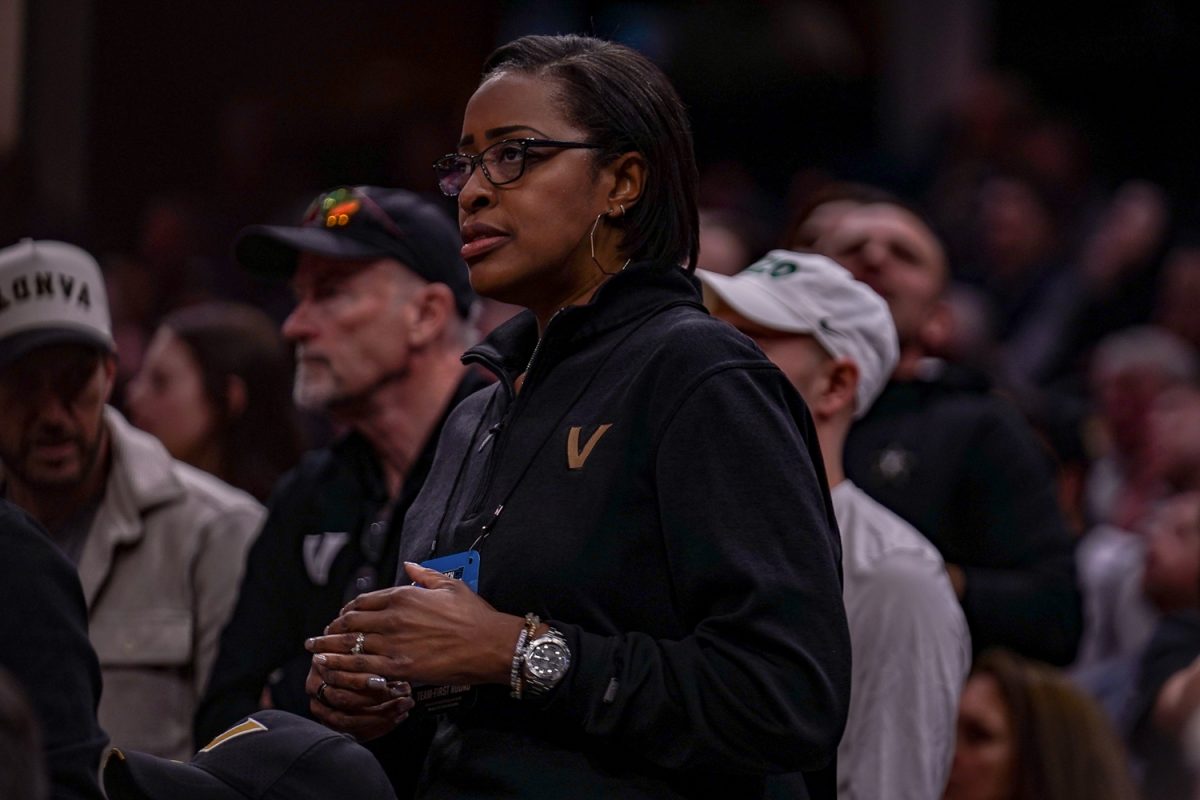




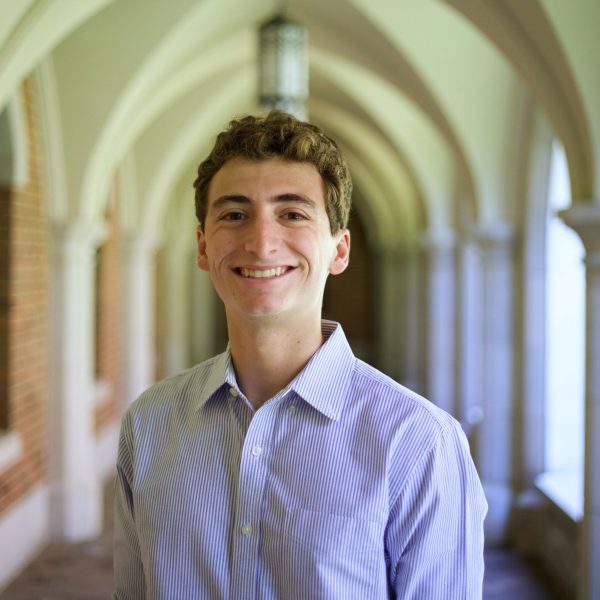
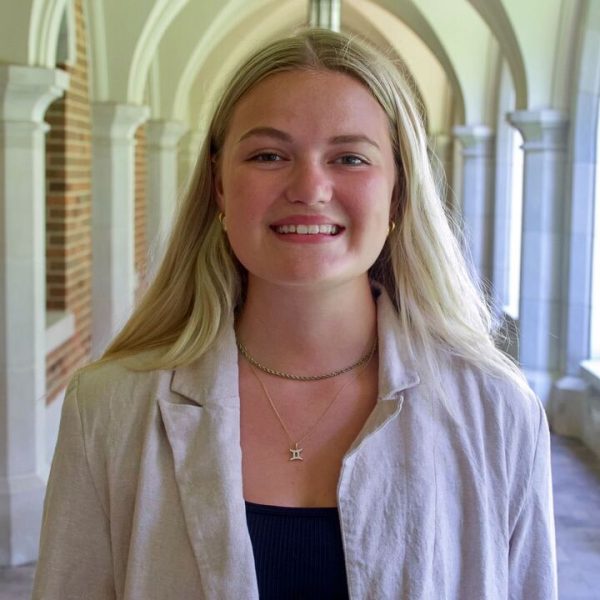
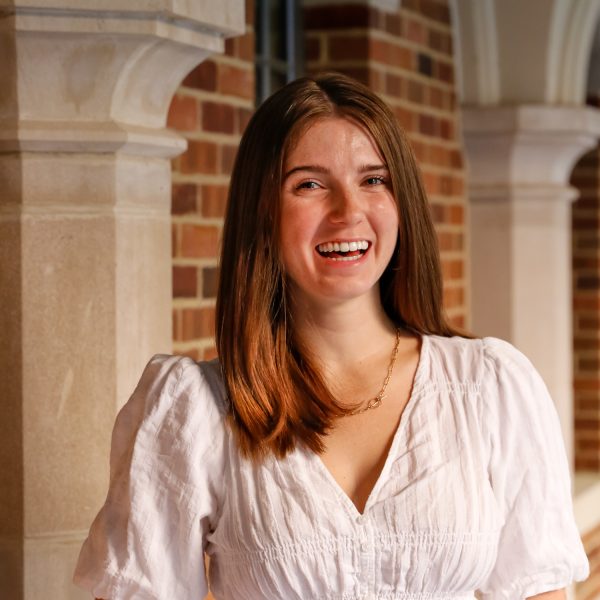
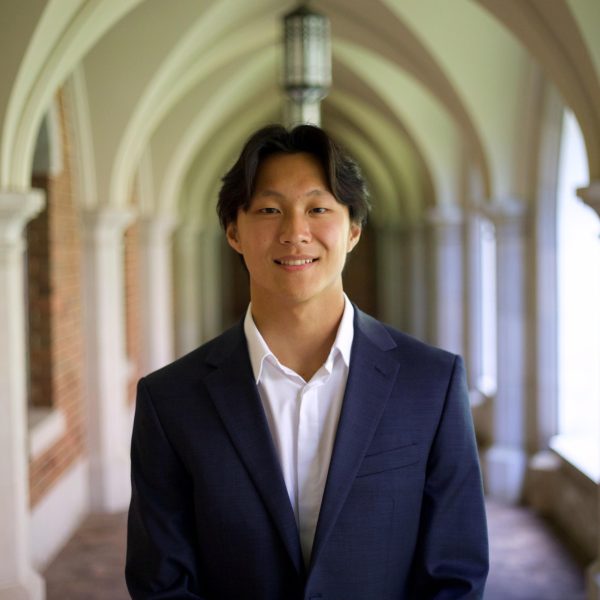
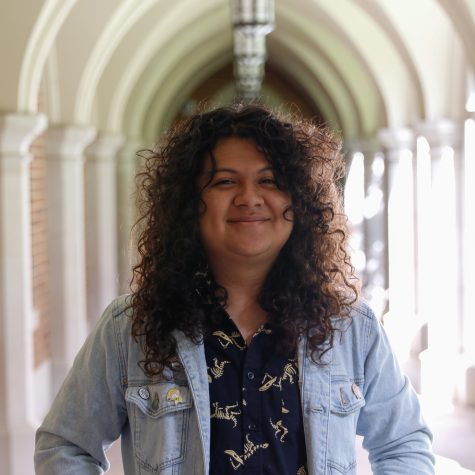

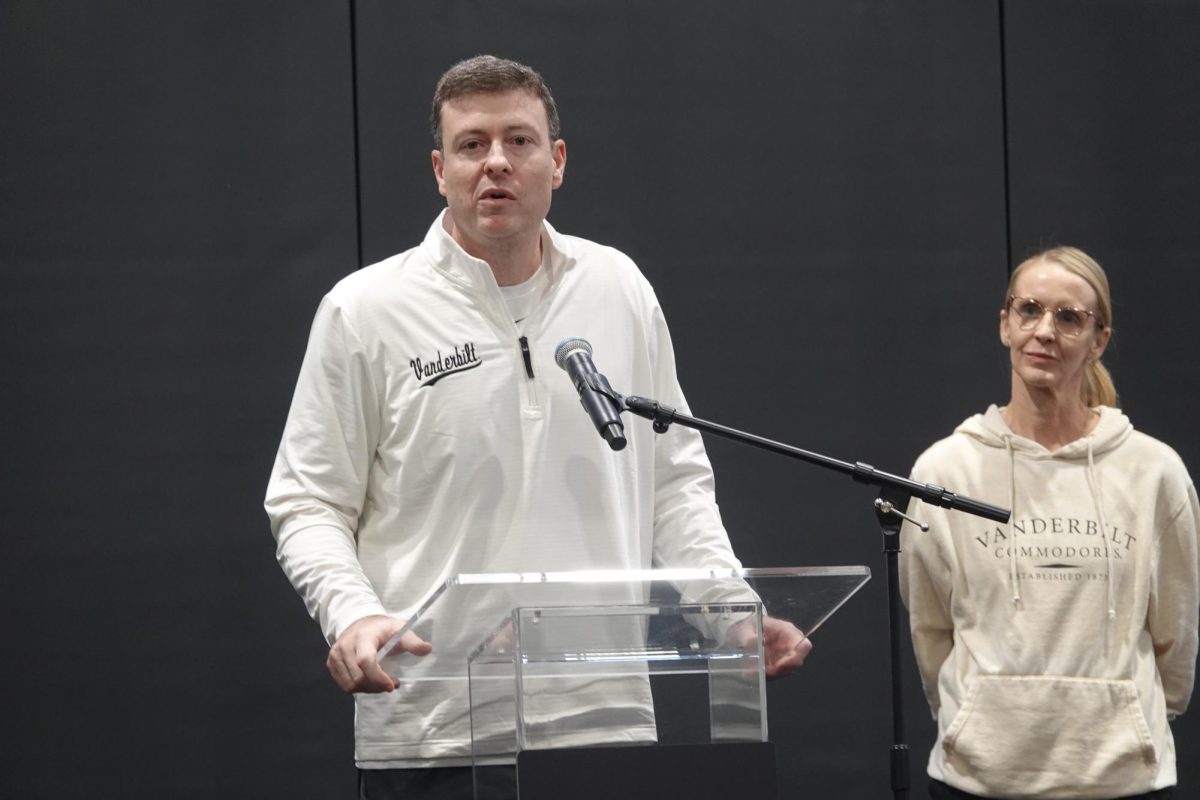
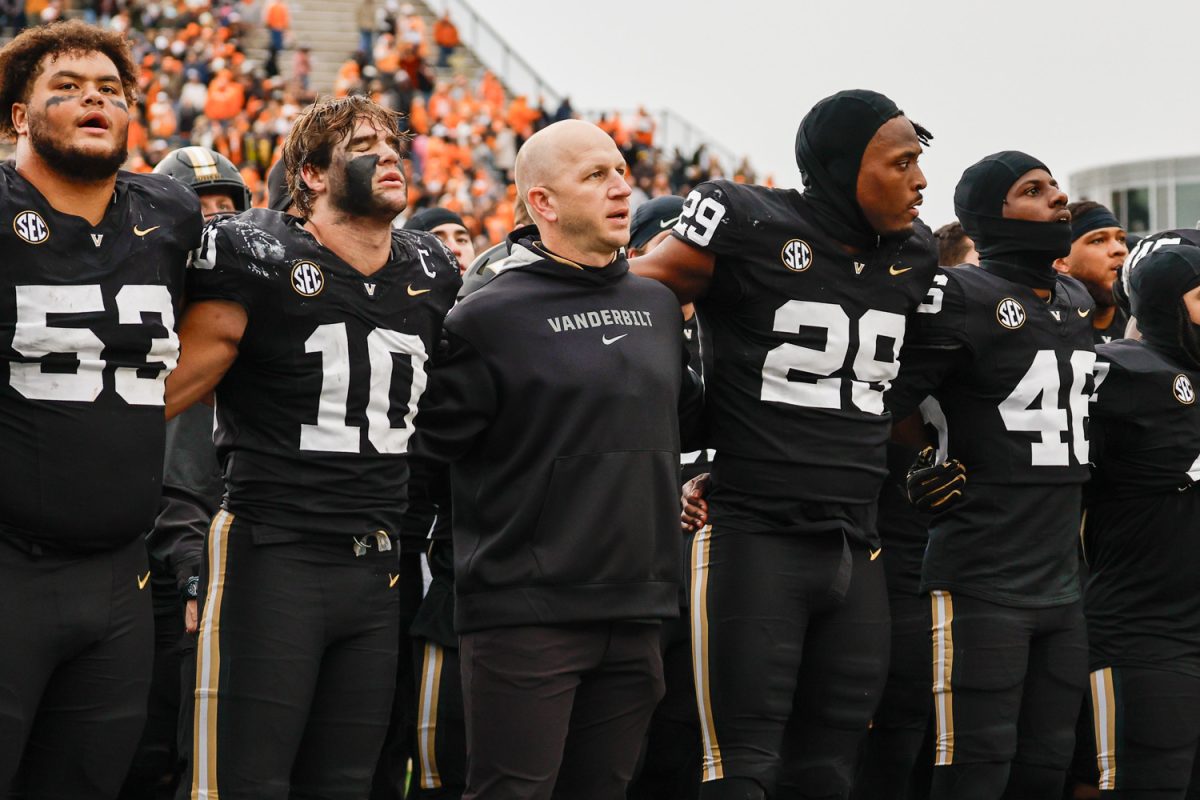


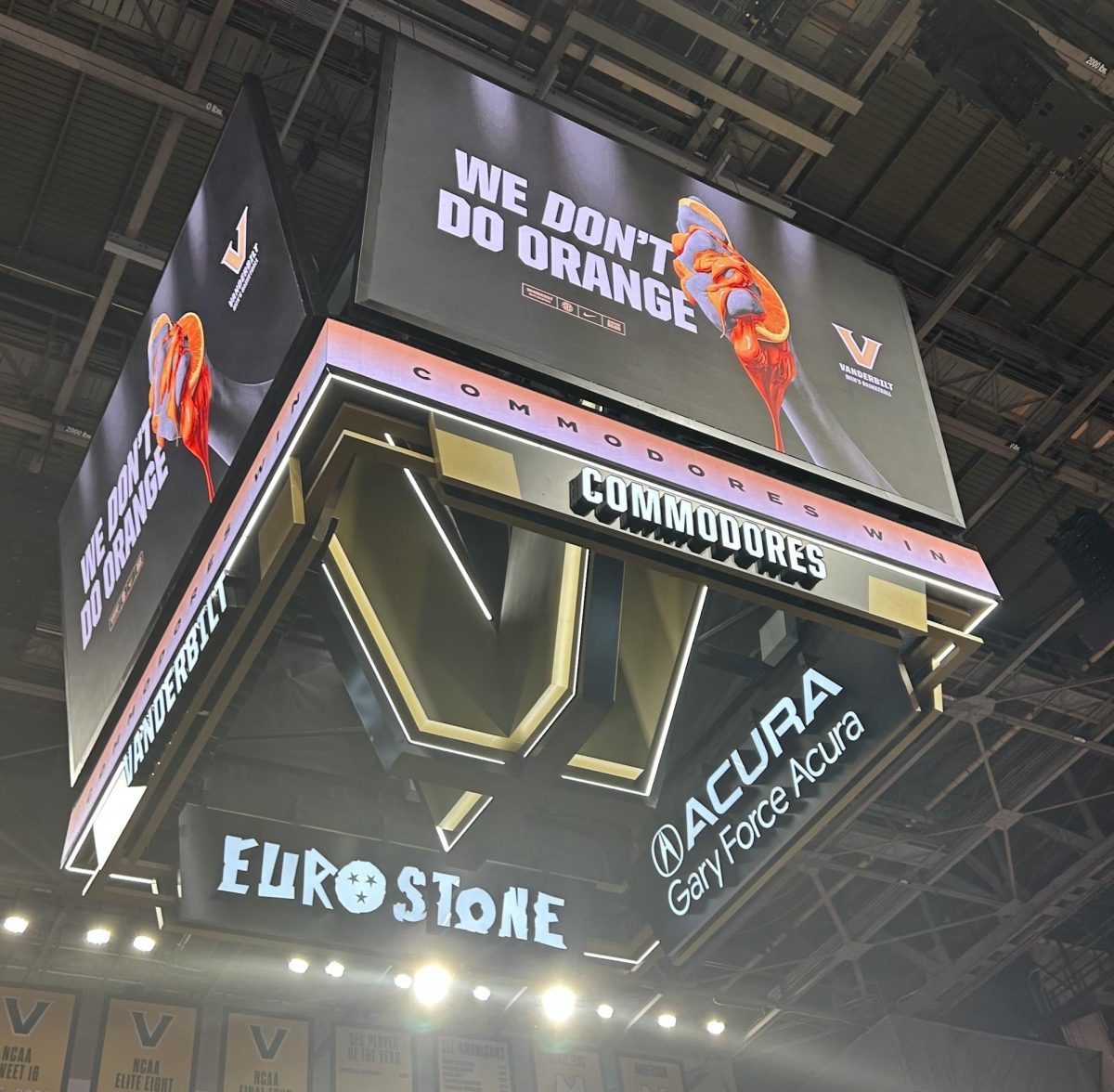
Barry Menzel • Apr 15, 2025 at 11:37 am CDT
Insightful and illuminating interview article Hustler staff

Most apropos and timely quote “One day it’ll seem like it happened overnight.’”